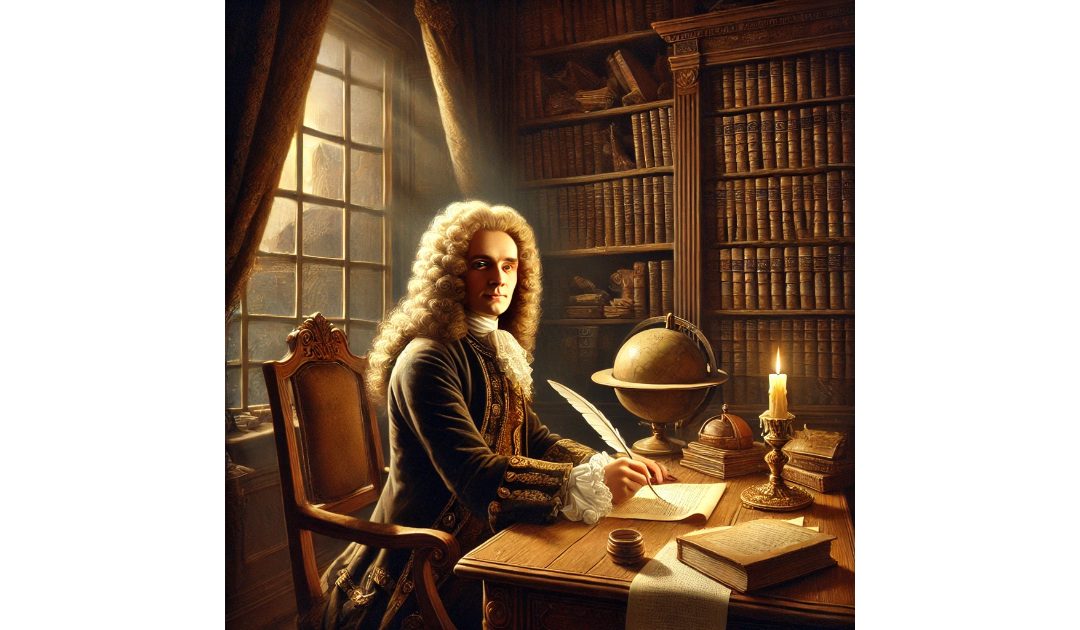On 11th January 1765 Frisia banned Voltaire’s book Treatise on Tolerance. Voltaire’s Treatise on Tolerance (originally Traité sur la tolérance), published in 1763, is a seminal work that advocates for religious tolerance and freedom of thought, reflecting the Enlightenment ideals of reason and individual rights. Written in response to the brutal execution of Jean Calas, a Protestant who was wrongfully accused of murdering his son to prevent his conversion to Catholicism, the treatise serves as both a philosophical argument and a passionate plea for justice and understanding in a society rife with religious intolerance.
At the heart of Voltaire’s treatise is the assertion that tolerance is essential for a peaceful and harmonious society. He argues that religious differences should not lead to persecution or violence, emphasising that faith is a personal matter that should not be subject to the judgment of others. Voltaire’s experiences with the injustices of religious fanaticism profoundly influenced his views. He witnessed first-hand the consequences of intolerance, which led him to champion the idea that all individuals, regardless of their beliefs, deserve respect and the right to coexist peacefully.
Voltaire begins the treatise by addressing the historical context of religious conflict and the often-violent consequences that arise from intolerance. He critiques both the Catholic Church and Protestant sects for their roles in perpetuating hatred and division. He points out the absurdity of religious wars and the hypocrisy of those who claim to follow a benevolent deity while committing acts of cruelty in the name of that faith. By highlighting these contradictions, Voltaire seeks to expose the irrationality of intolerance and to promote a more rational and humane approach to religious differences.
One of the key themes in the Treatise on Tolerance is the idea that no single religion holds a monopoly on truth. Voltaire argues that humanity’s understanding of the divine is inherently limited and that different cultures and societies will naturally develop diverse beliefs. He suggests that rather than clinging to dogmatic views, individuals should embrace a spirit of inquiry and open-mindedness. This perspective aligns with Enlightenment principles, which prioritize reason, skepticism, and the pursuit of knowledge over blind faith.
Voltaire also emphasizes the importance of the separation of church and state. He contends that government should not interfere in religious matters and that individuals should be free to practice their faith without fear of persecution. This idea was revolutionary for its time, as many European nations were still deeply entwined with religious institutions. By advocating for this separation, Voltaire lays the groundwork for modern concepts of religious freedom and civil rights.
Throughout the treatise, Voltaire employs a rational and often witty style, making his arguments accessible to a wide audience. He uses anecdotes, historical examples, and logical reasoning to illustrate his points, effectively engaging readers and encouraging them to reflect on their own beliefs and prejudices. His eloquent prose and sharp wit serve to challenge the status quo and provoke thought, making the treatise not only a philosophical work but also a powerful social commentary.
In addition to advocating for tolerance, Voltaire’s treatise calls for a broader understanding of human rights. He argues that the right to think freely and to express one’s beliefs is fundamental to human dignity. This emphasis on individual rights resonates with contemporary discussions about freedom of expression and the importance of protecting minority viewpoints in a pluralistic society.
The impact of Treatise on Tolerance has been profound, influencing subsequent thinkers and movements advocating for human rights and religious freedom. Voltaire’s ideas laid the foundation for later Enlightenment philosophers and contributed to the development of secularism in Western thought. His work continues to be relevant today as societies grapple with issues of religious intolerance, discrimination, and the need for mutual respect among diverse populations.
In researching and writing the Sir Anthony Standen Adventures, I have encountered religious intolerance over and over again. In The Spy who Sank the Armada Anthony, who is Catholic, is embroiled in the Eighty Years’ War, spying for the Protestant English and Flemish against Catholic Spain. In Fire and Earth the theme is the conflict between faith and reason as exemplified by the burning for the heresy of believing that the Earth orbits the Sun. Called to Account takes place against the backdrop of the Fettmilch Uprising a violent pogrom in Frankfurt.

